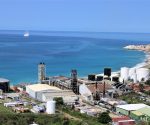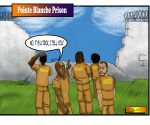The will of the people
 By Hilbert Haar
By Hilbert Haar
There is a tendency in the Caribbean kingdom countries to dismiss anything VVD-parliamentarian André Bosman comes up with. This is also true when it comes to his initiative kingdom law that aims to change the rules for countries that want to leave the kingdom. I have read somewhere for instance that it opens the door for “underbelly sentiments.”
Everybody knows that the VVD is one of those Dutch political parties that would love to see the islands of the former Netherlands Antilles leave the kingdom. And that’s okay: there is a reason why we have freedom of expression.
I have read the explanatory memorandum that accompanies this new Bosman-law (the text of the law only becomes available after it has been submitted to the Dutch parliament) and so far I fail to understand the criticism. Bosman has stated repeatedly that his criticasters probably haven’t read his proposal – and this is probably true.
So what would this law do for St. Maarten and by extension for Curacao? It gives the countries the right to leave the kingdom based on a national ordinance. It changes the Kingdom Charter in such a way that a decision to leave no longer requires a referendum and a two third majority in favor of leaving. A simple majority in parliament for a national ordinance would do the trick.
For St. Maarten this would put the control over its future as an independent nation into the hands of just eight parliamentarians. While this may sound scary, the reality is that the parliament in Philipsburg has been dragging its feet with a decision about an independence-referendum. To me, this is a sign that our politicians know very well that they will not get the (currently required) two third majority for independence.
This does not mean that the desire to become independent is therefore invalid. People are entitled to determine their own destiny – that remains an inalienable human right. In that sense however, there is no difference between the right to choose remaining within the kingdom and the right to choose for leaving. The desire to become independent does not supersede the wish of others to remain within the kingdom.
Bosman’s proposal gives St. Maarten some interesting maneuvering space. If his proposal becomes law, a referendum and a two third majority in favor of leaving are no longer required. At the same time, the parliament could regulate these issues in a national ordinance – and they are free to put the referendum- and the two third majority-requirements into it.
What Bosman’s explanatory memorandum does not address – but maybe he does this in the text of the draft law – is how St. Maarten would have to get around the requirement to change its constitution.
If St. Maarten wanted to change articles in the constitution related to basic rights, the competencies of the governor and the parliament and articles related to the administration of justice, it needs the kingdom’s approval. A national ordinance containing changes to the constitution requires a two third majority in parliament; this means that such an ordinance requires the support of ten MPs.
What exactly needs to be done once St. Maarten decides to leave the kingdom remains also unclear. The explanatory memorandum with Bosman’s draft law speaks of “a proper arrangement with the other kingdom countries.”
The draft law removes some hurdles on the road to independence that are currently anchored in the Kingdom Charter; it gives St. Maarten an Curacao the freedom to regulate leaving the kingdom as the countries see fit.
Right now I doubt very much that our parliament has the balls to write a ‘we-are-leaving-the-kingdom’ national ordinance. And if they ever do acquire those balls, I highly recommend that they put the requirement to hold a referendum in it, together with the requirement for a two third majority. After all, the desire for independence should be expressed through the will of our people, not through the will of a handful of politicians.
###
Related article:
Bosman-law gives St. Maarten more control over independence

























